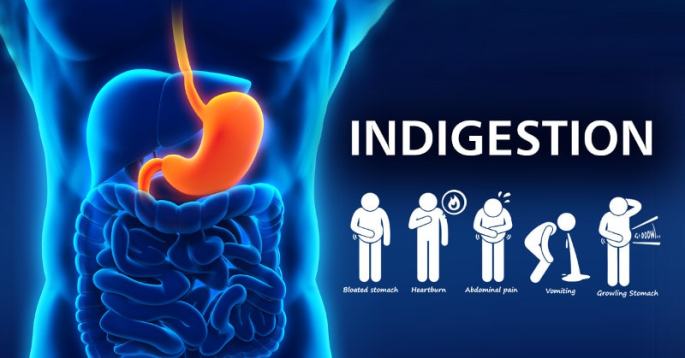Indigestion, also known as dyspepsia, is the uncomfortable feeling you get in your belly usually during a meal or after. It usually comes with bloating, nausea or vomiting, belching, and gas. In some cases, you can feel it while or after having a drink (alcoholic or non-alcoholic). It can occur after eating spicy or fatty foods, food high in acidity, and from overeating. It is usually the symptom of an underlying problem like gastroesophageal reflux disease (GERD), ulcers, gallbladder disease, or irritable bowel syndrome just to name a few.
If you are having indigestion issues and are tired of taking prescription or over-the-counter medications, you might have already started looking into natural remedies to help you overcome those issues. There are many natural remedies to choose from, but there are a few that stand out the most and actually top of the list when helping ease the pain and comfortability of indigestion and all that it brings.
There are some preventive measures that can be taken to minimize indigestion symptoms. These would be the first line of defense to combat indigestion. Such as frequently eating smaller meals. You can do this by eating a small meal or snack every 2 to 3 hours. Also, eating at a slower pace can help your indigestion; it also reminds you to eat more mindfully. Limiting your caffeine intake and increasing your water intake are also good ways to help with indigestion. Make sure not to eat too late in the evening, this actually causing the heartburn, acid reflux, and indigestion that you are working to combat. Adding whole foods to your diet such as lean meat, fruits and vegetables are a great way to get your body healthy and avoid upset stomach and avoiding spicy foods.
Sometimes it can be hard to remember to do all these things (especially avoiding spicy foods in my case), so there are other natural remedies out there that will help with indigestion as well. These are the top few I found while doing my research:
- Baking soda – acts as an antacid
- Mix about 1/2 a teaspoon baking soda with a cup of water.
- Can drink up to 2 to 3 times daily.
- Ginger – promotes healthy digestion
- You can add ginger as a spice to your meal.
- You can make yourself a ginger tea to drink.
- You can add 2 teaspoons of ginger juice and 1 teaspoon of honey to a warm cup of water to drink.
- Apple Cider Vinegar – has alkalizing effect
- Mix a tablespoon of ACV and a teaspoon of honey in a cup of water.
- Can drink up to 2 to 3 times daily.
- Fennel Seeds – contain volatile oils that help reduce nausea and control flatulence
- In a cup of hot water, add 2 tablespoons of fennel and leave it to steep for a while. Strain the water and add a teaspoon of honey. Can drink up to 2 to 3 times daily.
- You can chew a spoonful of fennel seeds.
- You can dry roast, grind, and sieve fennel seeds. Take 1/2 a teaspoon of this powder along with water. Follow this remedy twice daily.
- Chamomile – calms the stomach and soothes spasms in the intestinal tract
- You can take a half-teaspoon chamomile tincture up to three times daily.
- You can have a nice cup of chamomile tea.
- Peppermint – the oil soothes intestinal muscle spasms and helps relieve nausea
- You can take one or two capsules containing 0.2 milliliters of oil per capsule three times a day, between meals.
- You can have a nice cup of peppermint tea.
- Aloe vera juice – reduces inflammation
- If you have a 1/2 cup of aloe vera juice before a meal, it will settle your stomach.
- It is also a laxative, so be mindful that you will probably need to be near a bathroom.
There are plenty more remedies out there, what are some you have tried?



